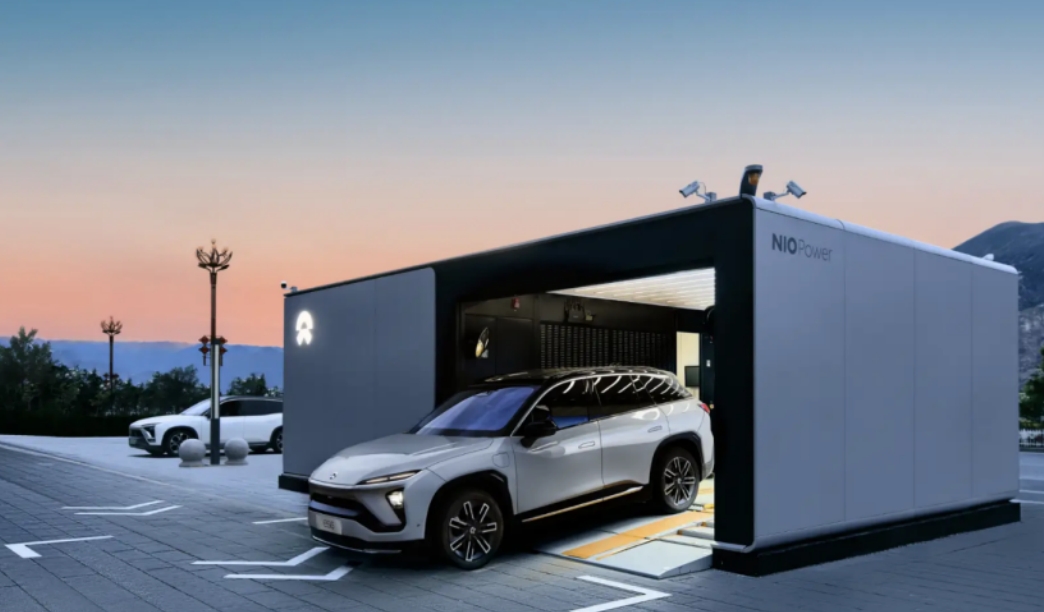
Recently, Volkswagen China officially announced a partnership with CATL in the battery swapping field, planning to launch standardized battery modules compatible with multiple vehicle models. As one of the world’s largest traditional automakers, Volkswagen’s decision not only reflects the industry’s anxiety over the need to improve charging infrastructure but also marks a new phase where battery swapping—once a niche market dominated by emerging players—is now entering mainstream competition among automakers. This move is seen not only as a key strategy for Volkswagen to address insufficient charging infrastructure and enhance user energy replenishment efficiency but also signifies an escalation in the competitive landscape of battery swapping.
Against the backdrop of accelerating charging infrastructure deployment and persistent user concerns over energy replenishment efficiency, can battery swapping overcome its commercialization bottlenecks? The battle for efficiency and the divergence of technical pathways are now front and center. How will the interplay of competition and collaboration among industry stakeholders reshape the market?
Entering a new competition step
The core competitiveness of the battery swapping model lies in its "3-minute full charge" efficiency, particularly advantageous for long-distance travel and B2B operational scenarios. NIO, a pioneer in battery swapping, had established 3,154 battery swap stations nationwide as of March 10, 2025, covering over 800 county-level regions, including 970 highway stations. This has significantly alleviated user range anxiety and charging time costs. Shen Fei, NIO’s Senior Vice President, publicly emphasized that a single swap station can serve three times as many vehicles daily compared to charging piles, while centralized battery management can extend battery life and reduce fire risks.
However, NIO’s battery swapping model relies heavily on proprietary battery platforms and user ecosystems, making it difficult to integrate with vehicles from other brands, thus creating a closed competitive barrier. Additionally, multiple battery swapping standards currently coexist in the market, such as those from NIO, CATL, GAC, and Geely, leading to compatibility issues due to differing technical approaches. For example, while GAC Aion and NIO have signed a battery swapping agreement, their batteries remain incompatible.

Volkswagen Group’s entry into battery swapping is an attempt to address the pressures of its electrification transition. In 2024, mainstream joint-venture brands saw sales plummet by over 30%, highlighting immense transformation pressures. By partnering with CATL, Volkswagen aims to leverage its battery technology and swapping expertise to rapidly deploy a swapping network and explore breakthrough strategies.
However, building a battery swapping ecosystem involves complex shifts in collaboration among automakers, battery manufacturers, and energy operators. The market is crowded with players: CATL, leveraging its battery technology, competes and cooperates with NIO, Geely, and others through its "EVOGO" swapping service. Meanwhile, State Grid has partnered with automakers like GAC and Changan to form the "Green Energy Alliance," promoting integrated solar-storage-charging-swapping networks. Such multidimensional competition accelerates technological iteration but also intensifies market rivalry.
Volkswagen’s Battery Swapping Plan: A "Breakthrough Battle"
Notably, constructing a battery swapping ecosystem is challenging. Beyond competing players, the model faces multiple hurdles. Cost-sharing is a critical issue, as building and operating swapping stations requires heavy capital investment.
For instance, Volkswagen plans to build 500 swap stations by 2025, with each station costing approximately 2.5 million yuan, totaling an initial investment exceeding 1.25 billion yuan. Assuming a service fee of 2 yuan per kWh, each station would need to serve 120 vehicles daily to break even—a difficult target in lower-tier cities. Operational costs, including battery reserves and maintenance, further strain profitability, making short-term returns unlikely for automakers and operators. In contrast, the ultra-fast charging (800V+) camp reduces charging times to 10-15 minutes for 400-500 km of range. Its advantage lies in compatibility with existing charging networks and minimal need for cross-brand collaboration.


Lastly, policy plays a role. In February 2025, China’s Ministry of Finance, Ministry of Industry and Information Technology, and Ministry of Transport jointly issued a notice to support 75 pilot counties in improving charging infrastructure. Regionally, cities like Shanghai and Shenzhen have introduced subsidies for swap stations, while others prioritize ultra-fast charging.
While battery swapping offers advantages in efficiency, user experience, and battery management, it struggles with high costs, standardization challenges, and technical bottlenecks. Volkswagen’s strategy must address not only technical hurdles but also balance collaboration, profit-sharing, and cost allocation among stakeholders.
Domestically, the race for battery swapping dominance has already begun. NIO founder Bin, Li stated on social media that 2025 is a "big year" for expanding swap stations. NIO has signed agreements with automakers including Changan, Geely, JAC, Chery, Lotus, GAC, and FAW to launch compatible models.
Volkswagen’s entry may usher in an era of "giant competition" in the battery swapping arena. Automakers are now vying to elevate their technical specifications into industry standards, transforming the battleground into a fight for dominance over technological norms.

 Room 1104,Block B,JingBan Building,6 Middle Beisanhuan Road,Xicheng District,Beijing
Room 1104,Block B,JingBan Building,6 Middle Beisanhuan Road,Xicheng District,Beijing
 (8610)62383600
(8610)62383600
 quanqixiang@carresearch.cn
quanqixiang@carresearch.cn
 京公网安备:11010202007638号|京ICP备17032593号-2|Report illegal and bad information:010-65993545-8019 jubao@carresearch.com
京公网安备:11010202007638号|京ICP备17032593号-2|Report illegal and bad information:010-65993545-8019 jubao@carresearch.com
Legal support:Beijing Yingke Law Firm|All rights reserved, DO NOT reproduce without permission